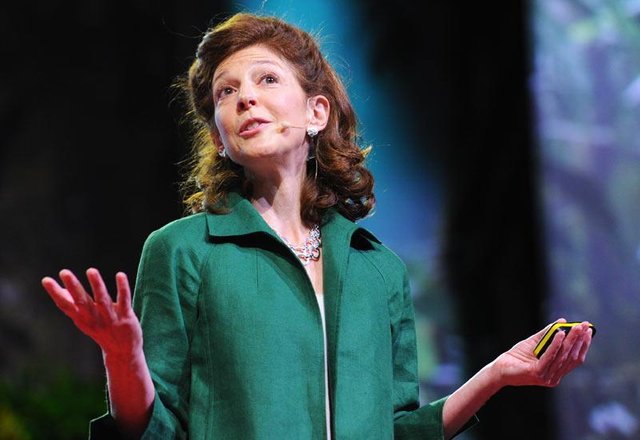I have been passionately promoting TED almost since it started. It is a fantastic initiation that completely re-shaped public speaking and informative presentations by creating a very entertaining and unique formula for sharing information. In today's accelerated world it offers us full engagement in any contemporary subject in maximum 20 minutes. Speakers are carefully selected and well-prepared to meet the high standards, therefore it is a real privilege to give a TED-talk. There are thousands of great speeches in basically any topic that you could imagine, so it is not easy to choose the best ones. Still, in this series I would like to share with you a few personal favourites.
I love watching people and observing their body language. One does not have to say a single word and yet we can have a clear picture about a long list of personal characteristics, emotions or physical-mental condition, just to mention a few. No surprise then that I enjoy all talks that deal with nonverbal communication. Pamela Meyer is a real pro. She is a social media expert who was working with a team of researchers over several years and then became an expert herself, receiving advanced training in deception detection, including multiple courses of advanced training in interrogation, microexpression analysis, statement analysis, behavior and body language interpretation, and emotion recognition. Her research is synthetized in her bestselling book Liespotting. In her talk she argues that on any given day we're lied to from 10 to 200 times, and the clues to detect those lies can be subtle and counter-intuitive. She shows the manners and "hotspots" used by those trained to recognize deception -- and she argues honesty is a value worth preserving. 😊
Do you have a favourite TED-talk? I would be interested to know. We can learn from each other... 😊 Stay tuned, soon I come back with another suggestion for you.
Previous parts of this series:
Simon Sinek on leadership
Ursus Wehrli on tidying up arts
Dan Ariely on the irrationality of our "rational" decisions
Julian Treasure on listening
Tim Urban on procrastination
Nicolas Christakis on social networks
Amy Cuddy on the power of body language
Dan Pink on motivation
Kelly McGonigal on stress management
Shawn Anchor on happiness at work
Ron Gutman on smiling
Michael Shermer on myths, superstitions and urban legends
Hans Rosling on interesting statistics
Apollo Robbins on the art of misdirection
Jill Bolte Taylor on an insider view of stroke
Kai-Fu Lee on artificial intelligence
Itay Talgam on lessons leaders can learn from conductors
Emily Levine on the theory of everything
Brian Little on who we are really
Al Gore on climate change
David Christian on the history of humanity in 18 minutes
Barry Schwartz on the paradox of choice
Andrew Solomon on how our worst moments grow us stronger
Phillip Zimbardo on time perspectives
Bill Gates on mosquitos, malaria and education
Mark Rober on the Super Mario Effect
Celeste Headlee on good conversations
Michael Patrick Lynch on seeing past our own perspective
Amanda Palmer on the art of asking
Jacob Wilde on the lessons we can learn from weaver ants
Alison Ledgerwood on positive thinking
Karen Thompson Walker on the power of fear
Thomas Suarez on how a 12-year-old can develop Apps
